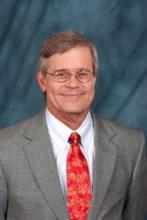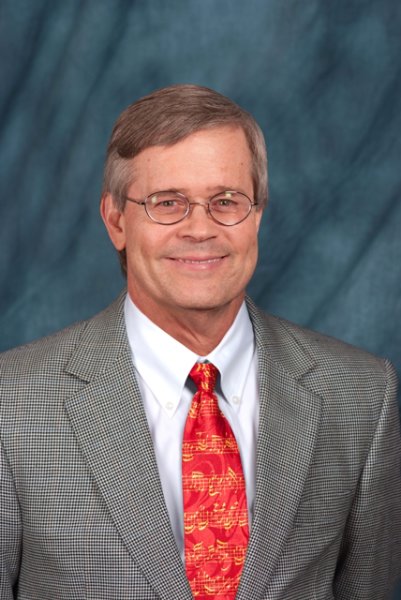User login
Expressing continuing frustration with the American Board of Internal Medicine, the American Association of Clinical Endocrinologists is exploring its own avenue for maintenance of certification.
In a video message e-mailed to members Aug. 13, Dr. R. Mack Harrell, AACE president, discussed events from a July 15 meeting between ABIM board members and representatives from the 26 subspecialty organizations that receive certification from the ABIM.
AACE representatives told the ABIM that the secure exam is outmoded and not reflective of how medicine is practiced, and that its members questioned the utility and applicability of the practice modules. The organization also said it wanted the ABIM to describe physicians as either "participating" or "not participating" in MOC on its Certification Matters website.
ABIM representatives said that all this and more would be considered at an Aug. 5 board meeting.
Now, AACE is waiting to see what kind of response it will get, Dr. Harrell said in the video.
"If we get the wrong answers after the ABIM board meets, we’re going to have to entertain forming alternative pathways for certification," he said. "It’s our belief that with the right coalition of subspecialty societies, we can put together an alternative pathway for lifelong learning."
He also told members that foregoing any kind of MOC is not an option. Going back to a system in which physicians get their initial certification and then show a certain amount of continuing education credits each year "is not going to fly in the current American health care environment," he said in the video.
The old system won’t work in part, because so much CME is either "not documented, or quite frankly, bad," Dr. Harrell said in an interview, adding that insurers, health care organizations, and other stakeholders needed more. "We have to come up with some way to be very clear about how we document that people actually attended CME and learned something."
As far as AACE creating its own pathway for MOC, "it’s something that’s doable, though it will require a good deal of work," he added. "If it’s necessary, we’ll do it."
Dr. Richard J. Baron, president and CEO of ABIM, said that setting up an MOC process is not easy, nor for the faint of heart. "If AACE wants to offer a separate credentialing pathway, I’m in a great position to acknowledge how complicated a task that is, how challenging it is to do it well, and I wish them luck," he said in an interview.
He noted that the ABIM was created very deliberately by the American College of Physicians and the American Medical Association because they believed that a society might not be able to set credible standards as a membership organization.
Dr. Baron said that he could not currently disclose what was discussed at the ABIM board meeting on Aug. 5, but that the ABIM would be issuing a communication shortly.
On Twitter @aliciaault
Expressing continuing frustration with the American Board of Internal Medicine, the American Association of Clinical Endocrinologists is exploring its own avenue for maintenance of certification.
In a video message e-mailed to members Aug. 13, Dr. R. Mack Harrell, AACE president, discussed events from a July 15 meeting between ABIM board members and representatives from the 26 subspecialty organizations that receive certification from the ABIM.
AACE representatives told the ABIM that the secure exam is outmoded and not reflective of how medicine is practiced, and that its members questioned the utility and applicability of the practice modules. The organization also said it wanted the ABIM to describe physicians as either "participating" or "not participating" in MOC on its Certification Matters website.
ABIM representatives said that all this and more would be considered at an Aug. 5 board meeting.
Now, AACE is waiting to see what kind of response it will get, Dr. Harrell said in the video.
"If we get the wrong answers after the ABIM board meets, we’re going to have to entertain forming alternative pathways for certification," he said. "It’s our belief that with the right coalition of subspecialty societies, we can put together an alternative pathway for lifelong learning."
He also told members that foregoing any kind of MOC is not an option. Going back to a system in which physicians get their initial certification and then show a certain amount of continuing education credits each year "is not going to fly in the current American health care environment," he said in the video.
The old system won’t work in part, because so much CME is either "not documented, or quite frankly, bad," Dr. Harrell said in an interview, adding that insurers, health care organizations, and other stakeholders needed more. "We have to come up with some way to be very clear about how we document that people actually attended CME and learned something."
As far as AACE creating its own pathway for MOC, "it’s something that’s doable, though it will require a good deal of work," he added. "If it’s necessary, we’ll do it."
Dr. Richard J. Baron, president and CEO of ABIM, said that setting up an MOC process is not easy, nor for the faint of heart. "If AACE wants to offer a separate credentialing pathway, I’m in a great position to acknowledge how complicated a task that is, how challenging it is to do it well, and I wish them luck," he said in an interview.
He noted that the ABIM was created very deliberately by the American College of Physicians and the American Medical Association because they believed that a society might not be able to set credible standards as a membership organization.
Dr. Baron said that he could not currently disclose what was discussed at the ABIM board meeting on Aug. 5, but that the ABIM would be issuing a communication shortly.
On Twitter @aliciaault
Expressing continuing frustration with the American Board of Internal Medicine, the American Association of Clinical Endocrinologists is exploring its own avenue for maintenance of certification.
In a video message e-mailed to members Aug. 13, Dr. R. Mack Harrell, AACE president, discussed events from a July 15 meeting between ABIM board members and representatives from the 26 subspecialty organizations that receive certification from the ABIM.
AACE representatives told the ABIM that the secure exam is outmoded and not reflective of how medicine is practiced, and that its members questioned the utility and applicability of the practice modules. The organization also said it wanted the ABIM to describe physicians as either "participating" or "not participating" in MOC on its Certification Matters website.
ABIM representatives said that all this and more would be considered at an Aug. 5 board meeting.
Now, AACE is waiting to see what kind of response it will get, Dr. Harrell said in the video.
"If we get the wrong answers after the ABIM board meets, we’re going to have to entertain forming alternative pathways for certification," he said. "It’s our belief that with the right coalition of subspecialty societies, we can put together an alternative pathway for lifelong learning."
He also told members that foregoing any kind of MOC is not an option. Going back to a system in which physicians get their initial certification and then show a certain amount of continuing education credits each year "is not going to fly in the current American health care environment," he said in the video.
The old system won’t work in part, because so much CME is either "not documented, or quite frankly, bad," Dr. Harrell said in an interview, adding that insurers, health care organizations, and other stakeholders needed more. "We have to come up with some way to be very clear about how we document that people actually attended CME and learned something."
As far as AACE creating its own pathway for MOC, "it’s something that’s doable, though it will require a good deal of work," he added. "If it’s necessary, we’ll do it."
Dr. Richard J. Baron, president and CEO of ABIM, said that setting up an MOC process is not easy, nor for the faint of heart. "If AACE wants to offer a separate credentialing pathway, I’m in a great position to acknowledge how complicated a task that is, how challenging it is to do it well, and I wish them luck," he said in an interview.
He noted that the ABIM was created very deliberately by the American College of Physicians and the American Medical Association because they believed that a society might not be able to set credible standards as a membership organization.
Dr. Baron said that he could not currently disclose what was discussed at the ABIM board meeting on Aug. 5, but that the ABIM would be issuing a communication shortly.
On Twitter @aliciaault

